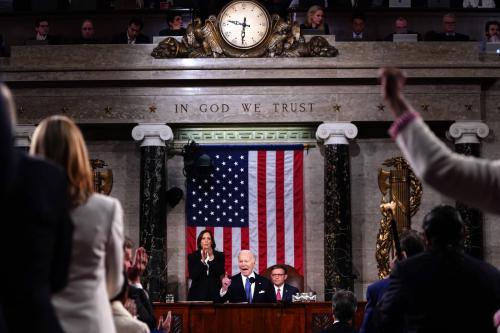Valdai International Discussion club interviewed Steven Pifer, Director of the Brookings Arms Control Initiative and a senior fellow in the Center on the United States and Europe.
Do you think that the “reset” is dead as soon as Romney wins the elections, if that happens, of course?
It seems to me that the reset accomplished its purpose, which was to take the US-Russia relationship, which in 2008 was at its lowest point since the collapse of the Soviet Union in 1991, and put a more positive momentum into that relationship. So, you have a new START treaty, and cooperation on Iran, Afghanistan, and getting Russia into the WTO. I think that the reset succeeded. Now if President Obama is reelected, there are going to be some tougher issues, and the questions would be: “Can you sustain the progress and build on that progress?”
If Governor Romney becomes president, it’s pretty clear from his pronouncements that he has a more skeptical view about Russia and the prospect for the US-Russia interactions, than President Obama. But I am not sure that campaign rhetoric is the best predictor of how somebody would behave, once in office. Certainly, some of the things he is saying are geared, the strong language towards Russia, are based perhaps on a calculation that it plays well with the political base he is trying to appeal to. You need to put a context here – the context of the presidential elections. We’ll see what policies he will pursue if he wins.
What about the personal relations between presidents? You are right, at 2008 we were at our lowest in our relations, but at the same time, we remember Putin and Bush were fishing together. If we talk about Obama-Putin relations or Romney-Putin relations, some might say that they would be pretty much the same.
Personal relations can help a little bit. Certainly, there was good personal chemistry between President Obama and then – President Medvedev, and that contributed to the reset. By the same token, there was excellent chemistry between President Bush and President Putin, but in those eight years look what happened to the relationship. That good personal chemistry between the two didn’t translate into momentum for the relationship. In fact, particularly from 2002 to 2008 you saw an almost continuous decline in US-Russia relations. So, personal chemistry can be overrated. We’ll see what will happen about the personal relations, but on both sides, the Russian side and the American side, they will be driven by interests first.
I don’t believe that we will go back to the Cold War, if governor Romney wins, but our relations can deteriorate, if the US takes a more aggressive stand, for example, on Iran, or Syria issue. Is that possible?
With Governor Romney, if he becomes president, when he takes office in January, he is going to find that the geopolitical reality is that on some issues he needs Russian cooperation. Or, it would be more likely that he can achieve his goals with Russian cooperation. For example, American and Russian interests, regardless of who is president, are going to coincide on Afghanistan. Neither wants to see failure in Afghanistan, the Americans because they would like to leave with some sense that theirs was a successful effort, the Russians because they don’t want to see the return to an unstable or Taliban-dominated Afghanistan that is a threat to Central Asia. So, there would be cooperation there.
On Iran there has been some rhetoric on Romney’s side that Russia won’t be helpful. But Russia has come a long way on its Iran policy. In 2002-2003, when I was in the government, nobody would have predicted that Russia would go to the point of adopting an arms embargo on Iran. And, as president, Romney will understand that working with Russia on Iran makes sense. So, some of the realities will force cooperation. The tone might be a little bit different, but then he would have to decide how much to push on questions where he disagrees with Russian policy, because you always have to balance them against other questions. You want to defend your interests when there are differences, and there will be differences on issues such as Syria. But how much do you want to push those issues if it undercuts your ability to cooperate on other questions?
So, the real change, by judging from what you are saying, would be in rhetoric?
Certainly, there will be a difference in tone, but we have to wait and see. When President Obama came to office, people both on the National Security Council and at the State Department said early on that they wanted a better relationship with Russia. That was because they thought that, to achieve some of their goals – to mobilize pressure on Iran, to have easier access to Afghanistan – having Russian support would make achieving those goals easier. And they also recognized that, in order to get that support, they would have to show some responsiveness to the issues which were of concern to the Russians.
So, very early in the new START negotiations, they indicated that they were prepared to limit not just warheads but also delivery vehicles. That was an important thing to the Russians, which had held up an agreement with the previous administration on a successor to START-1. So, they recognized that “give and take”. I hope, Governor Romney, if he is elected, would recognize that as well. The question is: would he be prepared to give enough that in fact you could have that positive “give and take” with the other side?



Commentary
Geopolitical Reality Makes U.S. seek Russian Cooperation
September 24, 2012